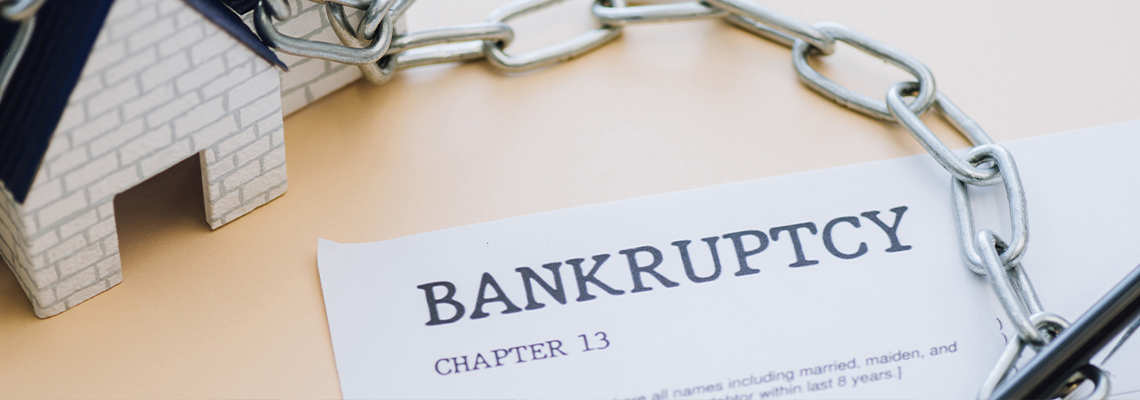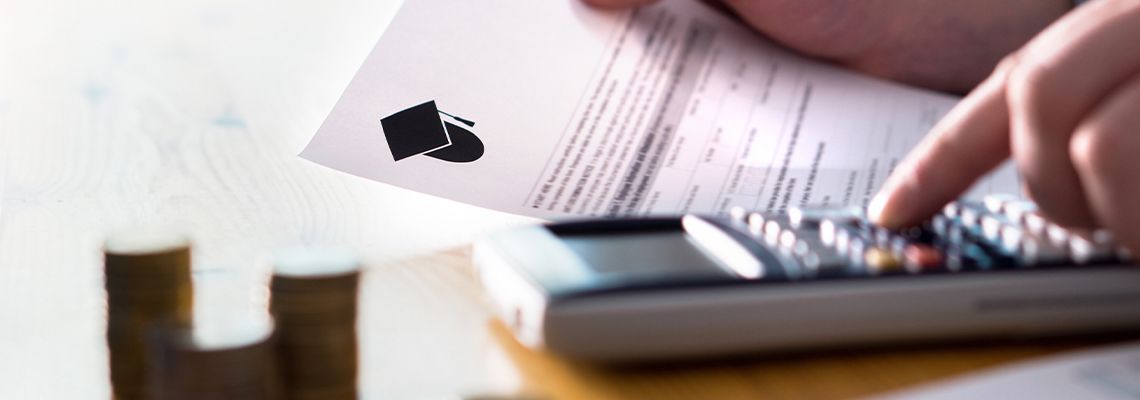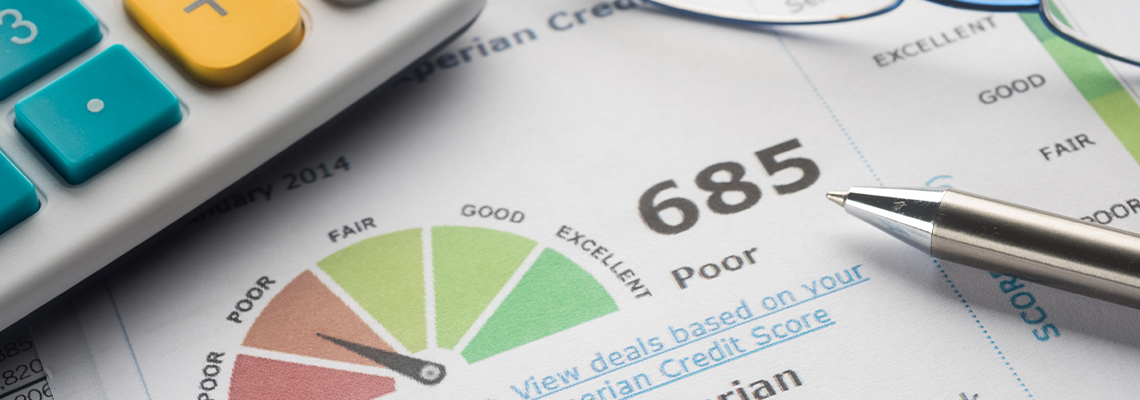Managing your finances can be overwhelming, especially when burdened with significant student loan debt. For many in New Jersey, bankruptcy seems like a potential solution. However, student loans are notoriously difficult to discharge through bankruptcy.

How to File for Chapter 13 Bankruptcy
Filing for Chapter 13 bankruptcy can be a beneficial option for those struggling with debt but wanting to keep their assets. This type of bankruptcy allows individuals to reorganize their debt into a manageable repayment plan. Here's a comprehensive guide on how to file for Chapter 13 bankruptcy, from preparing the necessary documents to completing the repayment plan.
Understanding Chapter 13 Bankruptcy
Chapter 13 bankruptcy is often referred to as a "wage earner's plan" because it enables individuals with regular income to develop a plan to repay all or part of their debts. Unlike Chapter 7, which liquidates assets to pay off debts, Chapter 13 allows debtors to keep their property while making payments over three to five years. According to FindLaw, to qualify for Chapter 13 bankruptcy, the debtor must have a regular income and their unsecured debts must be less than $419,275, and secured debts less than $1,257,850.
This bankruptcy option provides a structured way for individuals to manage their debts without losing their homes or other valuable assets. It's particularly helpful for those with significant arrears on secured debts like mortgages or car loans, as it enables them to catch up on these payments over time. The protection it offers from creditors and the automatic stay it triggers are critical components of its appeal.
Preparing to File
Before filing for Chapter 13 bankruptcy, gathering all pertinent documents is critical. This process involves compiling a list of creditors and the amounts owed, details of income sources and amounts, a list of all possessions (referred to as property), an estimate of each item’s monetary value, and detailed information about monthly living expenses. These documents are essential for creating a complete financial picture that will be submitted to the court.
Additionally, before filing, individuals are required to receive credit counseling from an approved agency. This counseling session must be completed within 180 days before filing the bankruptcy petition. The agency will provide a certificate of completion, which must be filed along with the bankruptcy paperwork. This step is mandatory and helps to verify that the debtor has considered all possible options before opting for bankruptcy.
Filing the Petition
Filing for Chapter 13 bankruptcy begins with the submission of a bankruptcy petition and several other forms to the US Bankruptcy Court, in this case, the New Jersey branch. The petition includes a statement of financial affairs, schedules of assets and liabilities, a schedule of current income and expenditures, and a schedule of executory contracts and unexpired leases. These documents provide a comprehensive picture of the debtor’s financial situation and are used to develop the repayment plan.
The filing process can be complicated, and working with a bankruptcy attorney can simplify it significantly. An attorney can help make sure that all necessary documents are accurately completed and submitted on time. Mistakes or omissions in the paperwork can lead to delays or even dismissal of the case, so professional guidance is invaluable at this stage.
Filing the Repayment Plan
The core of a Chapter 13 bankruptcy case is the repayment plan. This plan must be filed within 14 days of the bankruptcy petition and outline how the debtor will repay creditors over the next three to five years. The plan must prioritize certain debts, including priority debts such as taxes and child support, secured debts like mortgages and car loans, and unsecured debts including credit cards and medical bills.
The repayment plan should demonstrate that the debtor can make the proposed payments based on their income and expenses. It’s essential to work closely with a bankruptcy attorney to develop a realistic and acceptable plan. The attorney will help guarantee that the plan complies with legal requirements and is feasible for the debtor’s financial situation.
Appreciating the Automatic Stay
Upon filing for Chapter 13 bankruptcy, an automatic stay goes into effect. This stay immediately stops most collection activities by creditors, including foreclosures, repossessions, wage garnishments, and lawsuits. The automatic stay provides temporary relief and allows the debtor to focus on developing and confirming their repayment plan without the pressure of ongoing collection efforts.
This stay is one of the most powerful protections offered by bankruptcy. It prevents creditors from taking any further action to collect debts, giving the debtor breathing room to reorganize their finances. The stay remains in effect as long as the bankruptcy case is active, providing ongoing protection as the repayment plan is implemented.
Meeting Creditors and Attending the Confirmation Hearing
After filing the bankruptcy petition and repayment plan, the debtor must attend a meeting of creditors, also known as a 341 meeting. During this meeting, the bankruptcy trustee and creditors can ask questions about the debtor’s financial situation and the proposed repayment plan. This meeting is typically brief and straightforward, but it’s essential to be prepared and honest in all responses.
Following the 341 meeting, a confirmation hearing will be held. At this hearing, the bankruptcy judge will decide whether to approve the repayment plan. Creditors can object to the plan, but ultimately, it’s up to the judge to confirm or deny it. The confirmation hearing is a critical step in the bankruptcy process, as it determines whether the debtor can proceed with the proposed repayment plan.
Making Payments and Completing the Plan
Once the repayment plan is confirmed, the debtor must begin making regular payments to the bankruptcy trustee, who then distributes the funds to creditors. It’s critical to make these payments on time and in full. Failure to do so can result in the dismissal of the bankruptcy case. During the repayment period, the debtor must also file annual income and expense statements with the court and stay current on any ongoing debts, such as mortgage payments.
Completing the repayment plan typically takes three to five years. At the end of the plan, if the debtor has made all required payments, any remaining eligible debts may be discharged. This discharge is the ultimate goal of Chapter 13 bankruptcy, providing the debtor with a fresh financial start and relief from overwhelming debt.
Knowing the Role of a Bankruptcy Attorney
Getting through the Chapter 13 bankruptcy process can be challenging without professional help. A bankruptcy attorney can provide invaluable assistance in assessing eligibility for Chapter 13, preparing and filing the bankruptcy petition and repayment plan, representing the debtor at the meeting of creditors and confirmation hearing, and helping clients remain in compliance with all court requirements throughout the repayment period. Working with an experienced bankruptcy attorney can make the process smoother and increase the chances of completing the repayment plan and obtaining a discharge of remaining debts.
Contact a Bankruptcy Attorney Today
Filing for Chapter 13 bankruptcy is a structured way to manage debt while keeping your assets. With careful preparation and the guidance of skilled representation, individuals can develop a feasible repayment plan and work toward financial stability. Attorney Vera Fedoroff at Fedoroff Firm LLC emphasizes the importance of staying committed to the repayment plan to achieve a successful outcome. By working with a compassionate and confident attorney, debtors can take part in the Chapter 13 bankruptcy process with greater ease and confidence, ultimately achieving a fresh start and a brighter financial future.
If you're at a stage where your debt has taken over your life, consider talking to a bankruptcy attorney in Howell, New Jersey. The firm also serves clients in Jackson Township, Wall Township, Brick Township, and Freehold Township. Vera Fedoroff has over 20 years of experience in helping individuals, families, and businesses pave a path to financial freedom. There are many options for you to consider. At the end of the day, debt relief and financial freedom are what she strives for. Contact Fedoroff Firm LLC today to get started.
RECENT POSTS
Filing for Chapter 13 bankruptcy can be a beneficial option for those struggling with debt but wanting to keep their assets. This type of bankruptcy allows individuals to reorganize their debt into a manageable repayment plan.


